As an amateur scholar and die-hard enthusiast of everything to do with Alice in Wonderland, I have launched a podcast that takes on Alice’s everlasting influence on pop culture. As an author who draws on Lewis Carroll’s iconic masterpiece for my Looking Glass Wars universe, I’m well acquainted with the process of dipping into Wonderland for inspiration.
The journey has brought me into contact with a fantastic community of artists and creators from all walks of life—and this podcast will be the platform where we come together to answer the fascinating question: “What is it about Alice?”
For this episode, it was my great pleasure to have award-winning audiobook narrator Gerard Doyle join me as my guest! Read on to explore our conversation and check out the whole series on your favorite podcasting platform to listen to the full interview.
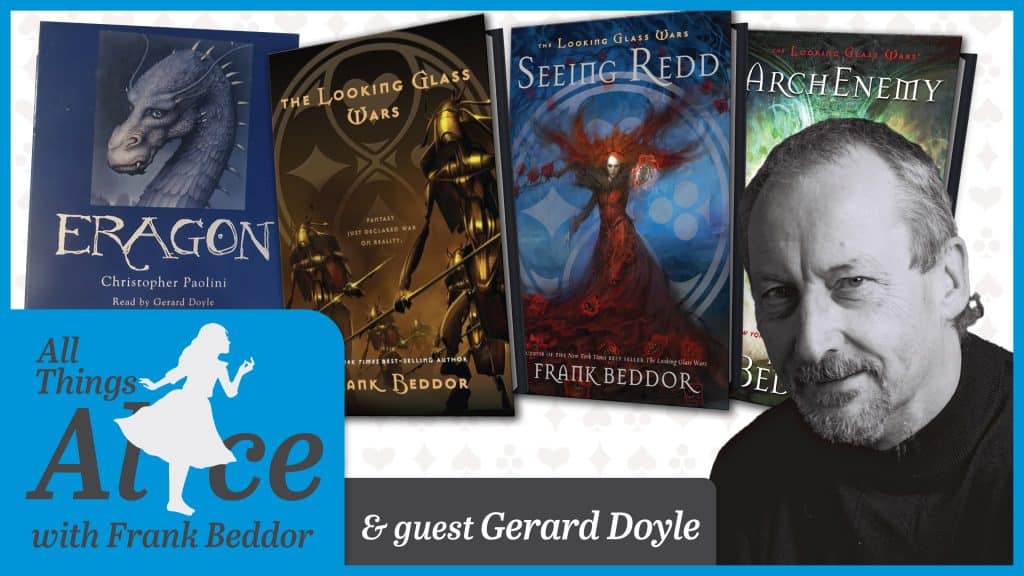
Frank Beddor
Gerard Doyle, thank you for doing this. It’s really fun to get to know somebody in this format who has done work for me and I just know them through their work. I was, of course, preparing a little bit today and I was so delighted to read about your background in theater and with Shakespeare so I have many questions for you. The most important question is, how would you compare Shakespeare's work to The Looking Glass Wars trilogy? Are they about the same?
Gerard Doyle
Apart from the lack of iambic pentameter? Shakespeare wrote some epic plays and some epic battle scenes. I can't say he was present in my mind when I was recording The Looking Glass Wars audiobooks but the two are not a million miles removed, Don't do yourself downly. That was a remarkable achievement.
FB
I'm really interested to hear about the narrations but I do want to start with acting because I had a very short acting career. I studied with Stella Adler at the end of her life and she made us all not only read the whole play but read biographies of the playwrights themselves so we could really understand the connection between their lives and their work and do a better job of interpreting the text. Then she also had us write a scene before the scene that we were performing on stage and that's what got me interested in writing because I was practically writing a play before the one scene that I was doing in the class.
I had no experience. I had come from doing commercials for when I was on the U.S. ski team. So my introduction to show business was through commercials and then acting. You’ve done a lot of work in the West End in London and you’ve done a lot of Shakespeare work. I deeply admire people who can make Shakespeare work, get on stage, and make it feel relevant for a contemporary audience. I'm really interested in hearing about your journey. Your work as an actor obviously translates to your audiobooks and narration. First listening to your work on The Looking Glass Wars was a shocking revelation because it didn't seem like my book. I read it one way and the great thing about great actors is they find their own voice and their own way into the material. You have an extraordinary skill for that.
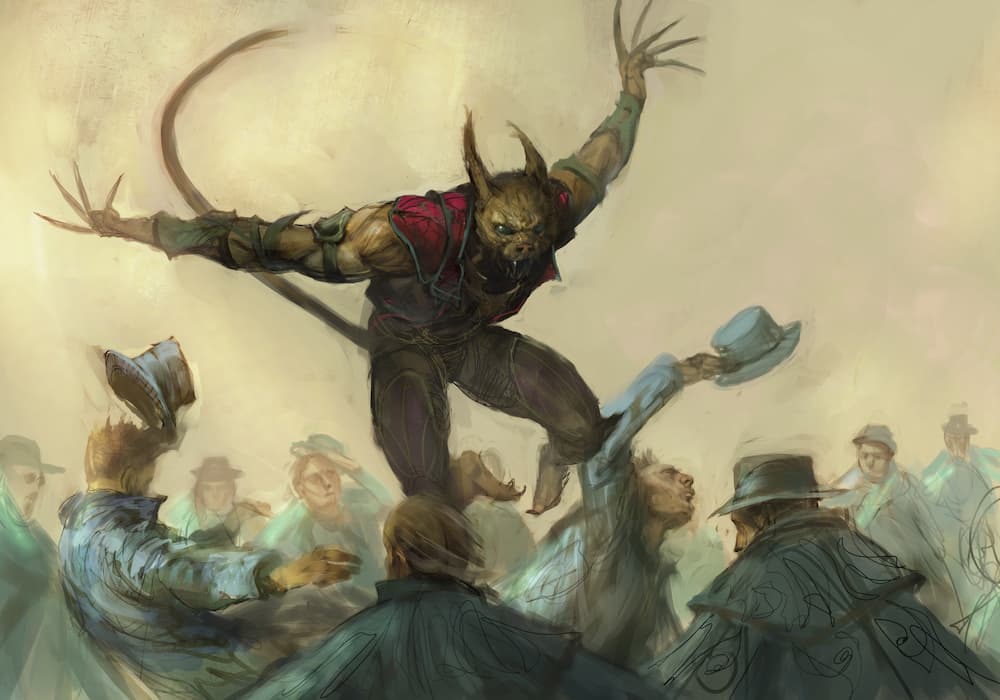
GD
Well, thank you very much. I was very lucky. I was a late starter. I was persuaded to join a local amateur theater company in England at the age of 21. Having done a little bit of theater at school, it was my refuge really. I was quite heavily bullied at school because I was a bit of an oddball and I found refuge in the drama club. I experienced recognition and approbation for my acting in a way I hadn't before. Being on stage felt very natural. In his autobiography, Patrick Stewart talks about how he felt the stage was a safe space for him. That really resonated with me. They couldn't get me. I wasn't being thrown down stairs. It saved me in so many ways. Then, in the way of these things, I dropped it. People said, “Oh, you should go to drama school.” But with my family, the expectations were fairly low in terms of one's ability to forge any kind of career, especially in the arts. You left school at 15 and got a job. That's pretty much what I did. Through one of the jobs, I was reintroduced to a girl I was at school with and she said, “Look, somebody's dropped out of a play I'm doing, can you come?” It was a wonderful French farce called Don’t Listen Ladies. It was a gift of a role. It was the fixer, like the Arlecchino character.
At that time, all the local amateur dramatic companies supported each other's productions. So in this tiny theater that held about 40 people with a postage stamp stage, suddenly, on the Saturday night, there were representatives from all these local drama groups. And they all invited me to join their company, which I did. I was so flattered and didn't like to say no to anybody. But I realized rehearsals were on the same nights and all the productions were within a week or two of each other. So I had to carefully choose and I got it down to three in the end. One of the companies was a group of young people and we did some pretty in-your-face theater. A lot of “nudge nudge, wink, wink” humor. But I was playing to audiences in tiny spaces. The front row was two feet away. It was something I got used to, not being inhibited by the proximity of an audience that you could literally look in the eye.
It was a great education. From that, at the age of 27, I went to drama school in Birmingham, England. It, frankly, wasn't a great drama school but I left with my equity card. The one thing about it for me was being a little older and more experienced than most other people, I got quite a lot out of it, including being invited to join this little acting company that was striving to get equity cards.
So I left drama school and got a job as an acting assistant stage manager at the Nuffield Theatre in Southampton. They had just finished a production of The Hired Man, which was a wonderful musical based on a novel about the mining and farming industries in the Northwest of England. It was based on real people. The author, Sir Melvyn Bragg, wrote about his family. I played his uncle, who was instrumental in unionizing the mining industry in the Northwest. This was 1984, at the height of the miners’ strikes. So it was pithy stuff. It was a wonderfully close-knit company. There are nine of us who are still in touch. But my education was actually in doing rather than academic.
My first Shakespeare was actually in Dundee, Scotland. I played Trinculo in The Tempest. I come from an Irish background and I had an Irish accent until I was about five when I was allowed to go out on the streets to play with the other kids and I lost it very quickly. But I still retained the ability to do the accent. It was thick in the house. So when I first read Trinculo, I thought, “I'll do him Irish.” But then I started having doubts and I backed away from it. I was having terrible trouble in rehearsal and the director wasn't really being very helpful. Lovely man but an awful director. I was floundering. Stephano and Caliban were both university-educated actors and because of the absence of direction, they took it upon themselves to direct our little comedy trio bits. I just wasn't comfortable at all. Finally, on the last rehearsal, with all the tech crew and stage management and everything, the last day before we went into the theater, I thought “Fuck it, I can't do this.” So at lunchtime, I went back to my original instinct and without telling anybody, very unprofessional, I changed Trinculo to Irish. The difference was just tremendous. But it screwed up everything they had carefully figured out for themselves. They weren't happy bunnies but we all got over it because it really did make a big difference.
I was actually reluctant to use my Irish accent but there was a girl who came to that rehearsal to visit her boyfriend, who was also in the play. We were talking afterward and she said that she recognized the accent. She asked, “Are you from anywhere near Kilsheelan?” Kilsheelan is in County Tipperary and eight miles from where my family came from. That was a huge reinforcement for me.
When I came to doing audiobooks, my very first one was an Irish novel, A Star Called Henry by Roddy Doyle. I got the job because, at the time, I was understudying two lead roles in a play called The Weir by Conor McPherson, set in an Irish Pub. We were on Broadway and my agent said, “Somebody is looking for somebody who can record an audiobook.” It came down to me and one of the guys I was understudying and I got it. I got an award from AudioFile Magazine my very first book.
The thing was, I'd never heard of audiobooks. So Claudia Howard, God bless her, who ran Record Books at the time, directed me for the first third of the book. Then when I finished it up and she felt I got into my stride, she went off and did more important things. When I finished the whole book, she called me back in for corrections and said, “Look, sit down and listen to the beginning and then listen to the end.” It was chalk and cheese. I was tentative and holding back so she said “I want you to sit down and rerecord the first 70 pages with the same energy that you had throughout the rest of the book.” That got me my first Earphones Award from AudioFile.
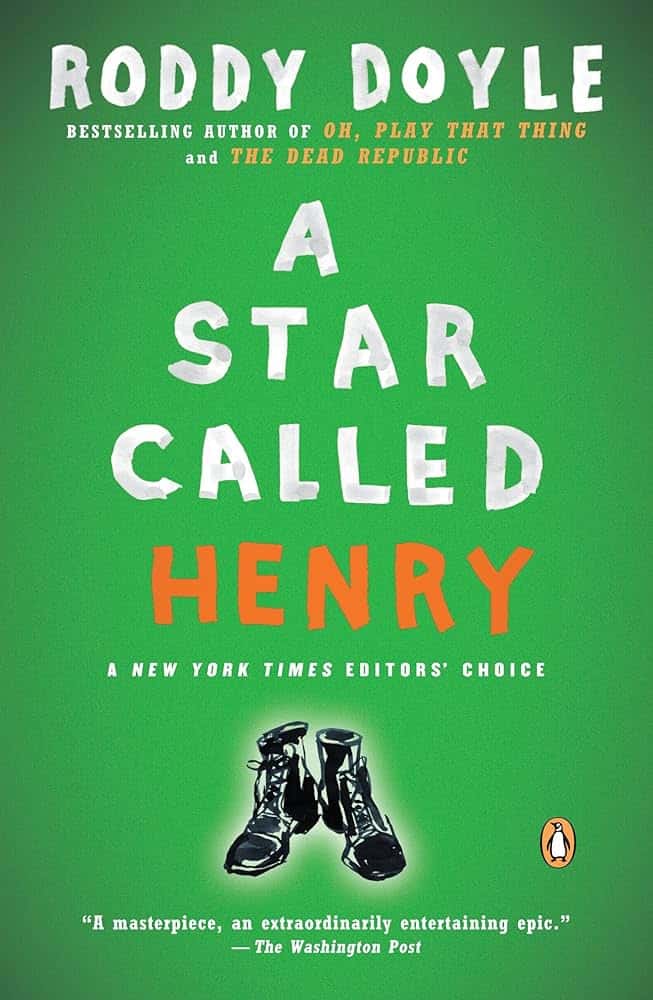
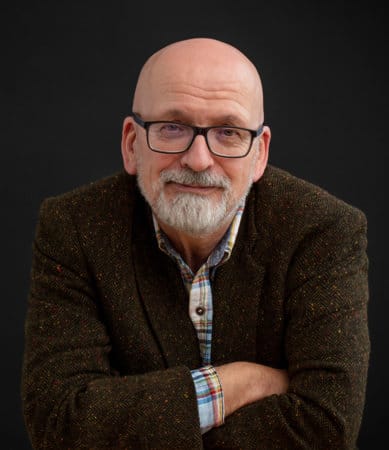
FB
You’ve had so many since and been nominated for so many awards. But going back to that first book, what was the process for getting the job? It was between you and one other person for this audiobook. What did they say? Did you read it? What was the process?
GD
I had auditioned for Claudia three years before, on a recommendation from a wonderful, wonderful Australian actor who had just finished doing The Lord of the Rings trilogy for Recorded Books. I was coming to America to introduce my son to his relatives here and my Australian actor friend said, “Oh, you must visit my friend Claudia Howard at Recorded Books.” So on the basis of his name, she gave me an audition and I was awful. It was absolutely dreadful. Three years later, when I went to audition for A Star Called Henry, she didn't remember me, thanks be to God.
FB
What was the audition like? Did you have to go in and read from the book cold?
GD
I don't think I got any sides or anything.
FB
So it's a cold reading with prose.
GD
What they're really interested in is trying to figure out if you can really tell a story. I had no confidence in that because I hadn't considered acting as storytelling. Of course, that is exactly what we do as actors. I hadn't the common sense to trust my instincts. So I gave a very stilted reading that first audition. When I came back three years later, I had a lot more experience under my belt and confidence, by that time, in my Irish accent. So when I read, it probably wasn't all that she was hoping for. Certainly, when I recorded the first chunk of the book, it wasn't all she was hoping for. But that was good enough to get the job and then she had me go back and match the beginning to the rest.
FB
Because reading or performing dialogue in a play is so different than trying to take a line of prose and imbuing it with the storytelling aspect. But you're right, we all tell stories. It's in the way you perform it. But you're making so many choices. What was so remarkable about listening to your reading of my novel for the first time was how it differed from how I originally had it in my head.
I would sometimes read the book out loud to see what the rhythm felt like and I knew that I would be not great for doing the audiobook because I was so typecast in the way I looked at the text. That’s why when I heard your version of it, not only is it because of the quality of your voice, but it's the storytelling and the performance. It's a performance piece and lines that I did not expect to be particularly thrilling felt really dramatic because they were setting up a moment that felt really suspenseful as you went into a piece of dialogue or a piece of action. It's its own art form.
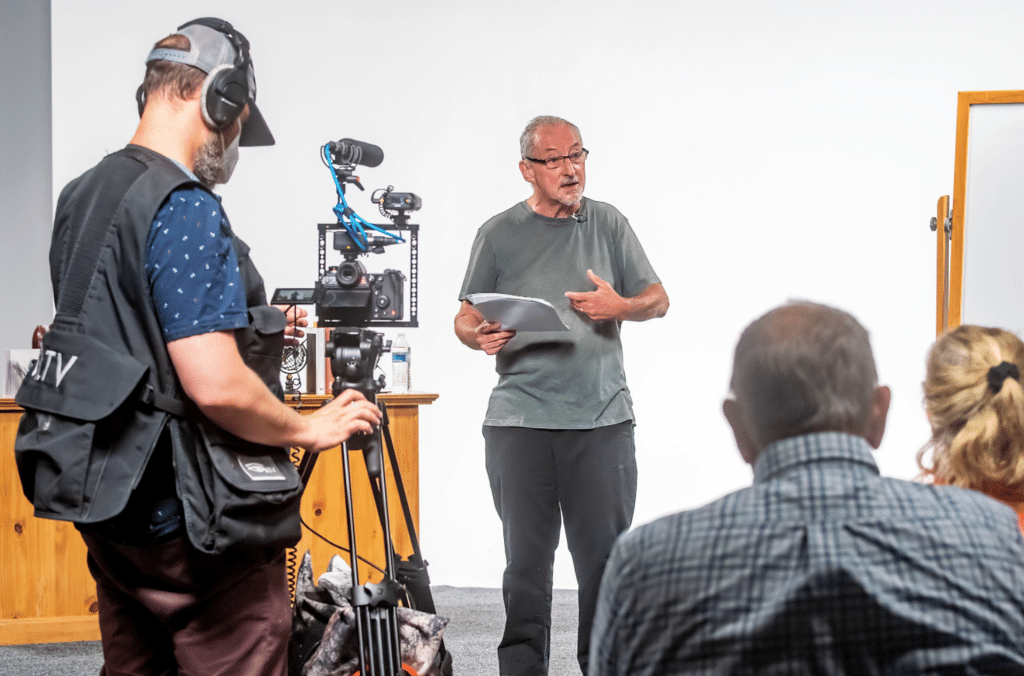
GD
I've come to kind of realize that over the years. It's amazing how much how much free range one is given. I've had direct contact with authors more recently but in the early days, nothing. I didn't think to ask. So it was all instinct and guesswork, not entirely because you obviously don't just sit and record the book, you have to prep it and read it.
The proper way is you read the book first to try and get all sorts of things. Depending on how much lead time one has, sometimes there's barely enough time to read the damn thing. Then you’re recording against a deadline. But I pay attention to everything an author says about individual characters. I make a note of physical stuff, the timbre of their voice, their accent, whatever it might be. That’s something you have to be really careful with because an author, being the contrary bunch of bastards that they are, will introduce a character on page 15 and describe their bloody voice on page 90. Exactly. If you've made the wrong choice based on not doing your job properly or not doing the research, that's an awful lot of rerecording to do. So paying attention to all those factors flushes out the character for me.
It depends on whether it's first-person or third-person narration but for any narration that refers directly to the character, I try to imbue it with the personality I feel that character has. So it sounds like it's from his or her point of view. It doesn't always work like that but I’ve become more comfortable doing that in recent years and it seems to work.
FB
What is the optimal way for you to prepare? I understand there are schedules and deadlines and they're rushing, but that doesn't seem to make much sense. Because then if you go too quickly and you haven't had a chance to do the research, you're going to be re-recording.
When you're presented with a book and they say, “Okay, do you want a week? Do you want two weeks?” Then in that prep time, you're making all of these notes. That makes a lot of sense because some of these books, like Eragon, are big bestsellers and you want to get that right.
GD
I had eight days to prep that.
FB
That seems short. Is that normal?
GD
That was pretty short for my first big book, although I didn't realize at the time how big it was going to be. But there's a lot of controversy amongst readers who will instantly complain about the dragon voice. Eragon and the dragon Saphira communicate telepathically. So readers ask why I didn’t give the dragon a female voice. The truth is, I was in such a hurry to prepare I forgot they communicate telepathically. I remember Taro Meyer, the wonderful director whom I've done all these books for over 20 years, stopped me and said, “Is that the voice we're going to use?” Rather than picking up on the hint, being young, arrogant, and nervous, I let it go. Of course, I didn’t realize at the time how many more dragons were going to be introduced in the following books and how doing all the voices and trying to differentiate them was going to rip my throat out.

FB
The director didn't directly point out to you, “Hey, this is a female voice.”
GD
I haven't gone back to check, but I've been reminded that in the first few pages when Eragon meets the dragon, Christopher Paolini describes the dragon's voice as being kind of gravelly and growling. Maybe I picked up on that. It's just so painful to do that I kind of regret I went for that. But a lot of people now seem to like it.
FB
It was such a successful launch and you also won the AudioField Award. It seems like you've won AudioFile Awards for all of your books.
GD
Absolutely not true.
FB
Well, you've done 400 books.
GD
Wow. Okay. I don't know, maybe 10% of them have received an AudioFile Award.
FB
That seems pretty good. I would definitely take that. By the way, The Looking Glass Wars audiobook was one of them.
You said you got a scratchy voice because of the demands on your voice to do the dragon characters in Eragon. How do you sustain that? How much of the book do you get done daily?
GD
It depends on the material but I've been known to do 70 or 80 pages, I've also been known to do 35. It really depends. As I’ve gotten older, of course, my rate slows down and now for the last 15 years, I've been recording at home. So I'm punch editing, rather than continuous recording. So that's a slower process. It takes me, on average, two and a half to three hours to record an hour. I make a lot of mistakes and I catch most of them, but then I have to edit them as I go.
FB
Then you go back and you redo…
GD
No, I never listen to what I’ve just recorded. I've made all the choices. It’s an intense process. I'm the narrator, engineer, and director, all in one, and I'm making those decisions constantly. I make the best choices I can and I tend not to go back. If there are errors that I haven't picked up on, mispronunciations or whatever, that will come back to me after post-production and I get a voice match. I record it as closely as I can to the original and they just drop it in.
FB
Do you have to take a day off if your throat gets sore or your voice gets a little hoarse?
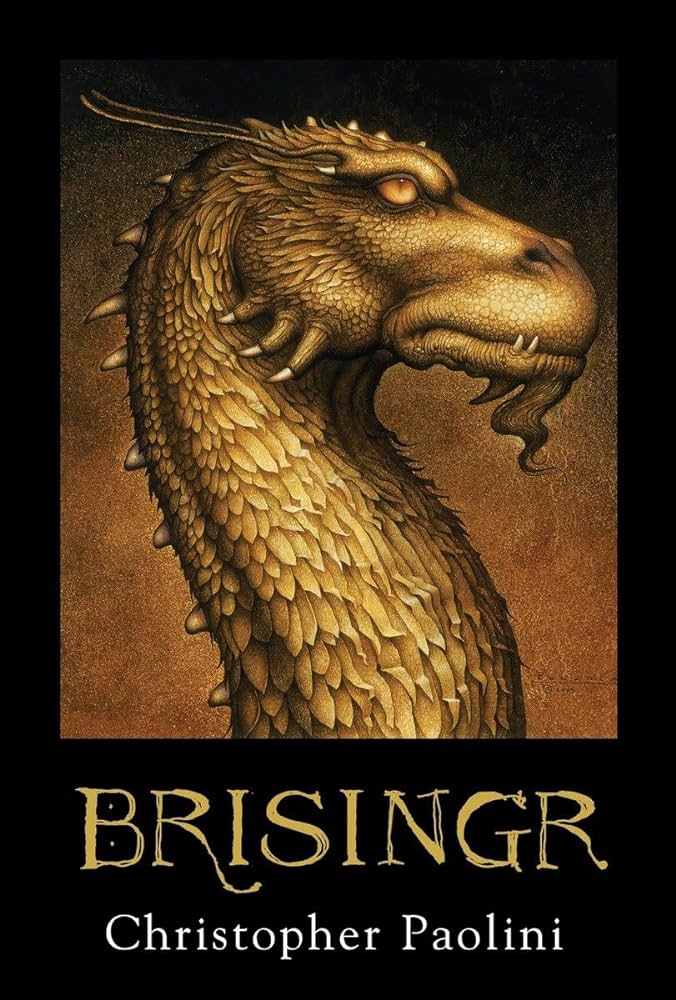

GD
I've rarely ever done that. I'm so lucky that my voice is quite robust. One of the Eragon books, I think number three, Brisingr, took around 110 hours to record the book over two weeks. I was pretty far gone after that.
The author, Paolini is a blessing. He’s a wonderful guy. He invented three languages for these books and he’s great with providing pronunciations. He has a whole linguistic structure for each language. He’s fantastic at supporting all that. But he’s a mischievous little bugger. Right before I started on either book three (Brisingr) or book four (Inheritance) he said, “By the way, I've changed the ending.” This was the night before the recording. He said, “I've added another dragon to give Eragon a springboard into a future book, and just for you, I've given him an extra deep growly gravelly voice.” I said, “God bless you, Christopher.” Anyway, I couldn't do it. I was so tired after 100 hours of recording. I nipped upstairs to where they were doing the post-production and I said to the chief engineer, “I know you're not supposed to do this, but can you do something electronic?” I think he did a good job. I've not listened to it, though. I tend not to go back and listen to my stuff at all. I can't stand to hear my own voice.
FB
A lot of people feel that way, including myself.
GD
I’m delighted that other people appear to enjoy listening to my voice but for me it’s excruciating.
FB
You've worked a lot with the Irish writer, Adrian McKinty. Were you acquainted?
GD
Blackstone Audio are the publishers and I cold-called them 16-17 years ago and Haley Williams, a wonderful producer there, talked with me for 45 minutes. We hadn't met. She didn't know me from Adam. Towards the end of it, she said, “Can you do an Irish accent?” I said, “Well, yeah, actually.” “I might have something for you,” she said. Two weeks later, they sent me one of his books, which was great. I think he liked what I did. That was recorded in the same studio where I recorded your trilogy. Same director, Sue Makowiec, and the same audio engineer Barbara Vlahides.
Do you remember there was an instance in The Looking Glass Wars where General Doppelganger manifests himself into 10 or 12 doppelgangers? Rather than just duplicating my voice, Barbara asked, “Can we rerecord it?” I think we did seven separate takes of each line and then Barbara magicked it altogether. I thought it sounded terrific.
FB
That was amazing. I was so excited when I heard that. The whole experience was a little bit surreal because they did allow me to listen to some different voices from the auditions. There were some really good choices but when your voice came on it was, “That's got to be the guy.” Then when they did that little manipulation with Doppelganger and the multiple voices over and over, I would never have imagined that. It was delightful. Thank you for the creative instinct.
GD
It was a bit of fun, really, but then we realized it was quite a lovely thing. I contacted Sue Makowiec a couple of weeks ago just to say “I’m doing this podcast. Have you got anything?” She said, “I gotta tell you that your characterization of Queen Redd was so close to my own. Every time we finished doing a Redd session, I expected to walk into the booth and find a red corset and a pair of red high heels.” I'm not much of a method actor, but that would have been taking things a little far.
FB
Did you do much cold calling when you were looking for work?
GD
I was working for an audiobook company, I'm not going to name them because this is illegal, that said, “If you're working for us, you can't work for these people.” I stuck to that and when another book came up from another publisher, I couldn't turn it down so I changed my name. I used my birth name, Michael, and my stepfather's name, which is Dehee. So I recorded several books for a lovely murder mystery writer named Deborah Crombie under Michael Dehee. I was doing this and I thought, “No, something's not right here.” Then in AudioFile Magazine, many years ago, I saw that Barbara Rosenblat, who worked for the same publisher I’m talking about, had narrated for a different publisher. What sauce for the goose is sauce for the gander. So, I called Blackstone. I think that was the only one I called because that was the company Barbara Rosenblat recorded this book for. So I called them and Haley Williams answered and the rest is history.
FB
And you've done 18 of Adrian McKinty’s books. Do you talk to him, having done that many books?
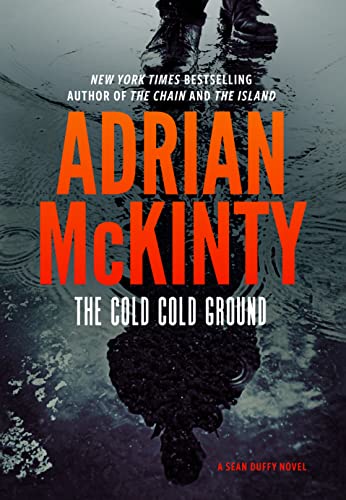
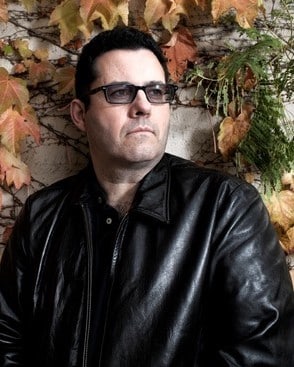
GD
Adrian writes a great blog. After one of the first few books of his I did he wrote something in his blog that I interpreted as a derogatory comment about my recording. Now having gotten to know him and his sense of humor I realized what it was but, at the time, being a little bit fragile about such things, I took it seriously. Then he wrote this trilogy with all these words he'd invented and I called the publisher who said, “We can't help you. We can't put you in touch. Call his literary agent.” I thought, “God, what am I gonna do?” As well as recording 17 books a year, I was teaching full-time. I was sometimes working till two or three in the morning and then getting up and teaching a class at eight. Couldn't do it now. I retired from teaching last June, thank God. But, anyway, I was at school and I called his literary agent, Bob, in New York, and I said, “Hello, my name is Gerard Doyle. You don't know me from Adam.” He went, “Oh my Godly fuck, I love you, man!”
It was the last thing I expected. I found out the audiobooks had boosted the print sales. So the agent put me in direct touch with Adrian, who lived in Melbourne, Australia at the time. It was like we'd known each other all our lives. It was extraordinary. I couldn't have been more wrong. He was just so appreciative of what I'd done. So I asked him to explain these pronunciations for this trilogy. He said, “I don't know. Say what the fuck you like. I just made it up.” That's all very well, Sunshine, but my name is on this book as well. I need some guidance here. Anyway, he was absolutely fucking useless. Between us, we figured it out.
FB
I remember sending you a list for The Looking Glass Wars. I can't remember which words you were asking me about but I tried to be helpful. I also remember going “I don't know, I just invented it. Can you please help me out?”
GD
With the author's permission, that's exactly what I do. But I can't just assume these things. Mispronouncing a name that's been invented by the author is one thing but my wife, who’s a midwife, was put off audiobooks because she was listening to her first audiobook and in this book, the narrator mispronounced “midwifery”. That was it. That can make or break a listener’s experience. If they know what you're talking about and you say it wrong, what's your credibility? I'm very meticulous. I don't always get it right but I'm very meticulous. I feel I owe it to the listener. Actually, not so much them, it’s my own self-preservation. I don't want to get grumpy letters.
FB
You’re sensitive to your own voice and you're sensitive to readers’ reactions. Why is that? After reading so many books, you've won so many awards. Is it that you're a perfectionist? What is it?
GD
I've never lost my insecurity. Do you ever lose your insecurity as an actor? I don’t always trust myself to do it the way it needs to be done.
FB
I can tell that.
GD
I'm not as bad as I was. But I know you trust yourself.
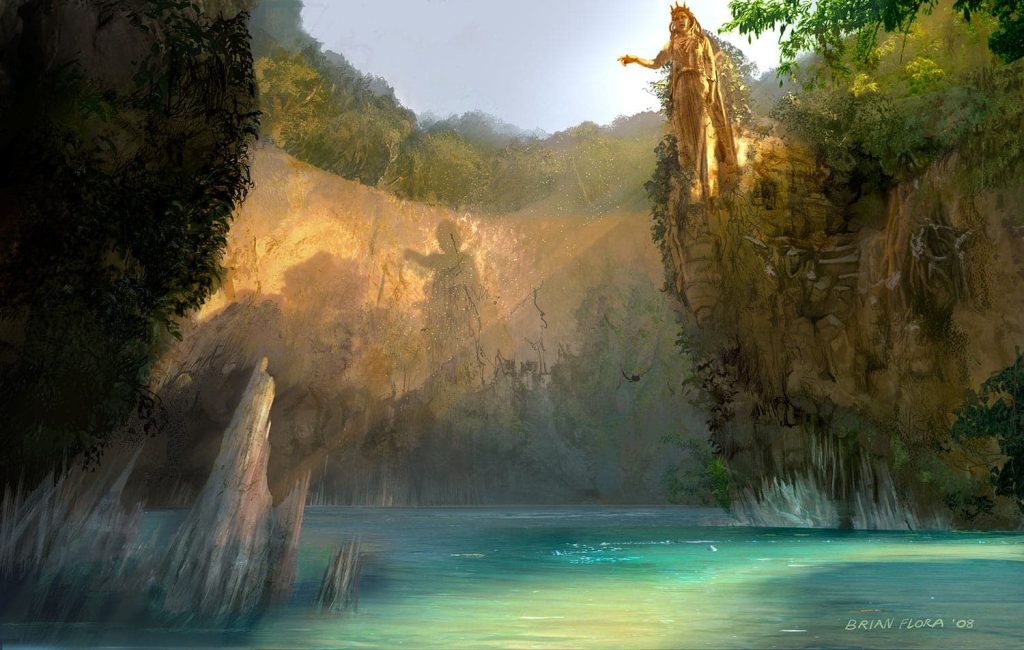
FB
There were some emails back and forth between us with The Looking Glass Wars and then when I listened to it I thought exactly the opposite. I just thought this is somebody who has such a command over their voice and the form. It resonates when you listen. Having been very insecure about my writing, I asked this question because I'm sensitive as well. I had a lot of really bad reviews which I thought was because I was an American and people knew that I worked in Hollywood. I was taking on this iconic literary work, reimagining Alice in Wonderland. There were so many strikes against me heading into it and I had to rewrite it so many times because I was very insecure about it being any good.
Again, your reading just grounded me. I just felt like, it's a fucking good book. Listen to this guy. I want people to listen to your book before they read my book because I think it's a better book. It seems like a better book as an audiobook, because of my insecurity. It’s a collaboration. You're taking the text and using this extraordinary skill. I double back to the insecurity part because I relate to it. To answer your question, “I think you improve and then eventually, if they're really snarky, you’re just like, “Fuck off.”
GD
The most useful words in the English language.
FB
But I’d wake up at 3:30 in the morning and have little night terrors about what a shit chapter that was and how I have to go back and rewrite it.
GD
That’s not something that haunts me, really. Your process is much more protracted than mine. I'm making all my decisions as the words are coming out of my mouth. Nothing is pre-planned. I used to do annotations for every line and it just ruins any kind of spontaneity. So I found the confidence not to do that and to trust myself that I can actually lift the words off the page and do something with them and they come out in the way they come out. I don't have night terrors about what I have or haven't done because I don't leave the booth without feeling I've done the best I can with whatever was happening in that session.
FB
But, smartly, you don't go back and re-listen to it. I have to go back and re-read it.
I'm curious. I listened to Philip Pullman's The Golden Compass and I think it had a cast audiobook. Philip Pullman was the narrator and they had all these other voices. Is that something that's common? Is that something that you've ever done or participated in?
GD
I've worked with two, three, maybe four other narrators. But we've never interacted. It's always been separate. In more recent years, I've actually sat and discussed things with the other narrators. But again, I was so naive back in the early days. I didn’t want to put my head above the parapet. I just kind of read my bit and hoped that it was gonna fit in with everybody else. It mostly did, apparently. I really enjoy collaboration because I've done two books in collaboration with different narrators in the last two years, and it was just wonderful. They were so lovely to work with and we were very supportive of each other.
FB
When audiobooks first started being released it was like, “Well, it's not real reading. Why are you not reading the book?” It's like it was cheating in some weird way and now there's been such a big boom in audiobooks and they’re driving sales of printed books. Why do you think that is?
GD
People don't have to lug a Walkman or a boombox around with them these days, that’s one thing. It's all readily available. I think the word just got out that audiobooks are actually fun, educational, and interesting. I prefer to sit and read a book myself. I've got several authors I'm trying to juggle at the moment.
FB
Who are you reading?
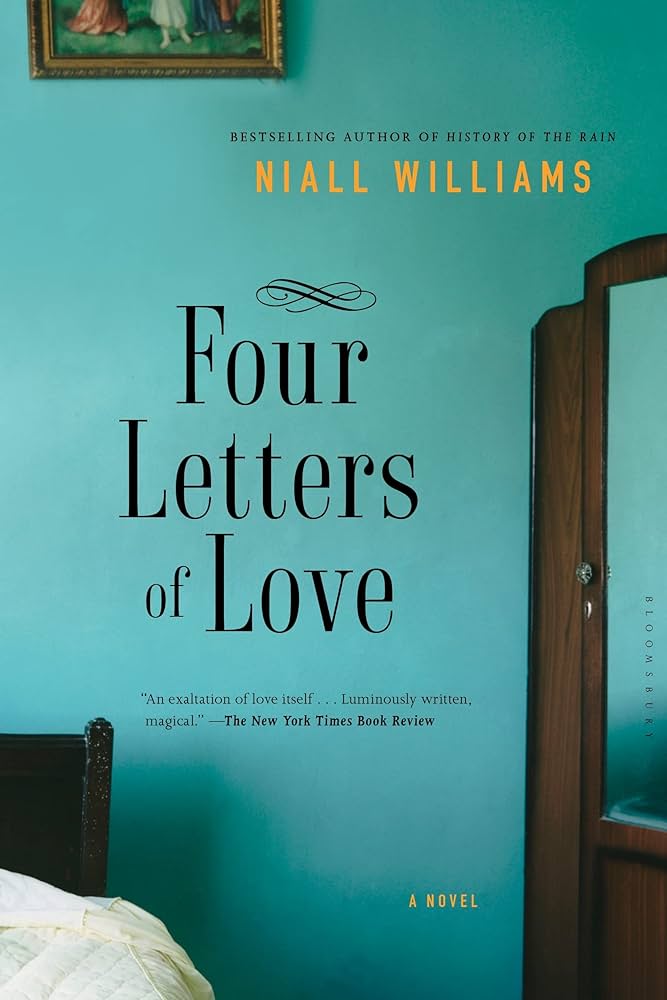
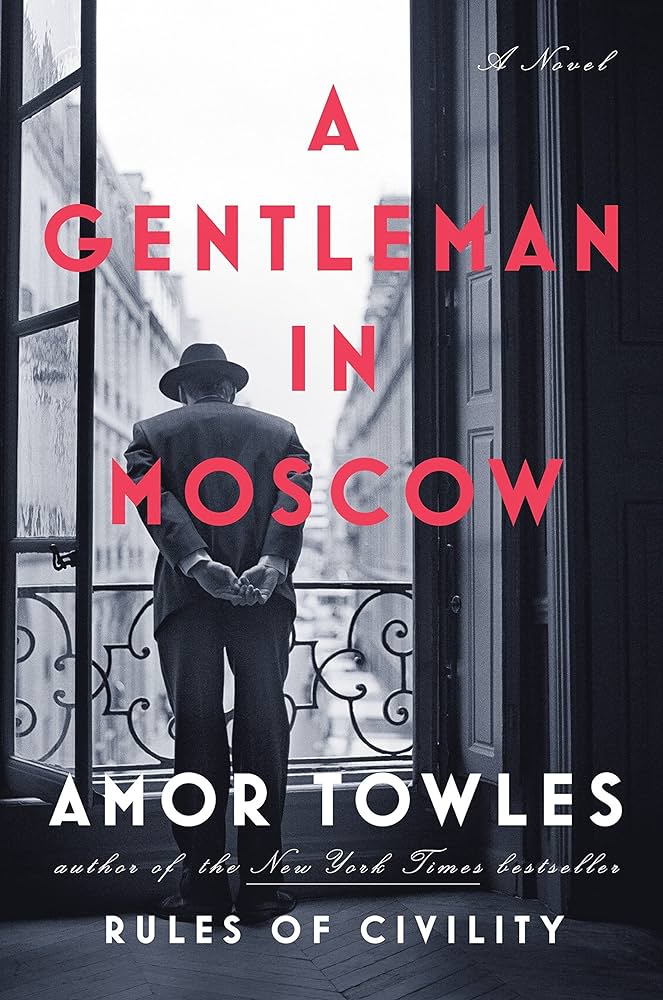
GD
Niall Williams, the Irish author. The man put words together like prayers.
FB
I would love to have that as a blurb. It's so great.
GD
I think I'm stealing from a review. I’m also reading Amor Towles. His second book, A Gentleman in Moscow is now a TV series. Wonderful, wonderful storyteller. Each book is completely different. Not even closely related. Completely different context, different parts of the world.
FB
That's amazing. I envy that ability. With audiobooks, I find biographies to be ideal in terms of going for a walk and having your headset on. I don't enjoy audiobooks when it comes to prose. I like to see the words in the sentences and paragraphs and find that rhythm. I'm with you on that but it is quite a booming section, which, anything that gets people interested in stories and books is great as far as I can tell.
GD
Something just clicked when you said that, the rhythms and everything. I think that one of the things I tried to be sensitive to is how can I make this sound as interesting to somebody who's listening to me as I find it reading it off the page. That’s the process. Elevating it is the wrong word but…
FB
It is elevating it because it's elevating it in a different medium.
You narrated one of the novels of a show I'm watching which is Slow Horses. I'm really enjoying the show but have never read the book. Can you tell us a little bit about narrating the novel? Have you seen the show? Did they do a good job?
GD
I started recording the Slough House books in 2016 and I had absolutely no terms of reference, no contact with the author. So I just did what I do, I went with what he was giving me. Then three years ago the series came out and I was reluctant to watch it but finally my wife said, “Oh, come on. It's Gary Oldman. You’ve got to watch it.” So I did and I was delighted to realize that I wasn't a million miles away with any of the characters.
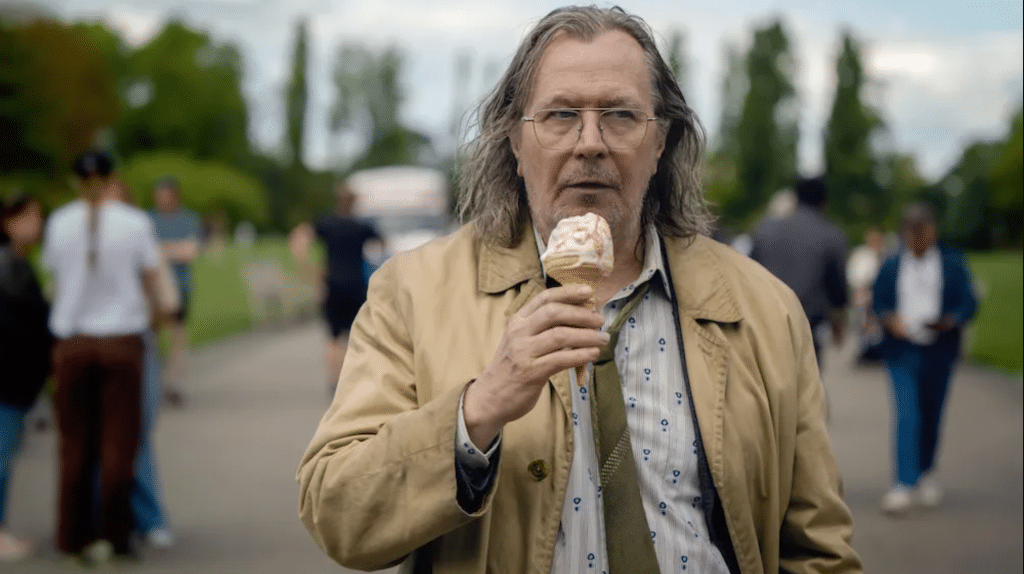
FB
That's so satisfying.
GD
I was very happy. I’m within the ballpark.
FB
That's so cool. How about Eragon, the movie? That was not as successful. Did you see it?
GD
I saw it but I don't remember much about it. I know that certain people close to the author weren’t happy with it.
FB
They didn't quite get that right.
GD
Normally I would record those books every four or five years in a plus studio in New York City with the director, Taro Meyer, and an engineer but this year, with the latest book, the executive producer said, “Look, we'd like you to record it at home and we'd like you to engineer it.”
FB
Do they even pay you extra for that?
GD
We negotiated something. But not including the engineer? I said, “Absolutely not.” It was a continuous record, which means you have to mark the script and you have to mark it in Pro Tools as well. I have trouble just interpreting the bloody story and dealing with my vocal errors. I absolutely put my foot down. She said, “We'll get you an engineer from our pool.” I said, “No, my son is a brilliant audio engineer.” So they auditioned him and he got the job. He was sitting right outside my recording booth, managing my temperament and fairly a strong-willed director via Zoom from California and doing all that an engineer does. He was brilliant, not just with engineering, but with diplomacy, as well. It was an extraordinary experience.
FB
That's a lovely father-son experience.
GD
They don't normally put the engineer’s name on the packaging but I asked them and so they they put Aiden's name, Aiden Doyle, on the packaging.
FB
That's a perfect button on a fantastic father-son story. Is he going to continue to do other books with you?
GD
As I’ve gotten older and as the market has been flooded with 1000s of young and very talented and very tech and social media savvy narrators, my slice of the work has diminished significantly. I'm trying to reinvent myself as a director working with less experienced narrators. I’ve been thinking of marketing my son, Aidan, and me as a team. He can nurture them through the recording process and I can guide them through the interpretation and various other things.
FB
That seems like a good idea because he's quite young so he's going to know and meet a lot of up-and-coming folks who are looking for narrators, authors, and books.
I wanted to talk about Alfred Bester, who wrote The Stars My Destination and The Demolished Man. I wanted to talk about it briefly because many, many years ago I optioned the short story “Fondly Fahrenheit” and I've been developing it as a feature since 1995, which shows you how impossible it is to get certain projects going. But I still continue to work on it and my partner, Chuck Roven, just won the Academy Award for Oppenheimer. So hopefully, that might move the ball forward. But I'm a huge Alfred Bester fan. The two books I mentioned earlier are brilliant. They've been trying to adapt those into movies for years and years. How did you come to narrate those novels? Had you known about Alfred Bester before the narration?
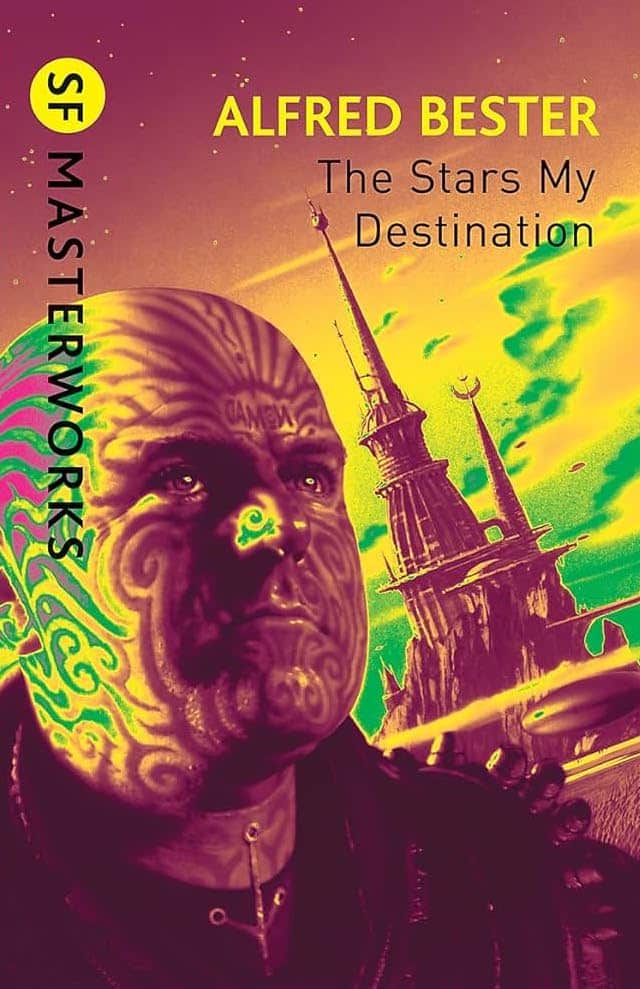
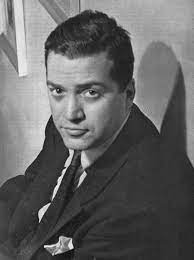
GD
No, I hadn't ever heard of Alfred Bester. I'm not a big sci-fi or fantasy person. I find it all very hard to interpret because I simply have no connection with it. But there's a publisher who lives on Shelter Island and I taught his kids at Ross School. He came to me one day and said “I've got a couple of books I'd like you to record for me.” It was extraordinary. In The Stars My Destination the writing in the print version is all distorted. One word will take up the entire page. It’s extraordinarily laid out.
But seeing that visual and trying to translate that orally was a pretty big challenge. But I just went for it really. I have a terrible American accent, my family has completely undermined any possible confidence I might have had in my American accent by guffawing outrageously every time I attempt one. So I had to interpret those books as being for English characters. I was concerned that might have diminished the impact, but people seemed to kind of enjoy the fact these voices weren't from anywhere they were remotely familiar with.
FB
I'm looking forward to listening to them. I'll tell you a quick little story about Alfred Bester. When I read the short story, I was looking to see if there were any heirs and I couldn't find anything. Finally, somebody turned me on to his editor, a British fellow, and I called him up in the U.K. He said “I have no idea. If I were you, I would call his bartender.” There was a bar he went to all the time outside of Philadelphia. So I called up this bar and the owner came on and I asked, “Do you happen to know the author, Alfred Bester?” He said, “Alfie, oh, Alfie was a good friend of mine.” I said, “Do you know who owns the rights to his literary estate?” He goes, “I sure do. I do.” He willed the entire literary estate to his bartender because he had no family. So I made a deal with his bartender to option this short story. That’s as close as I got to the author himself. But bartenders have a lot of secrets about their patrons.
GD
Isn't it funny how this profession takes you anywhere? You never ever know. A number of times, I've been completely floored by something out of left field that is deeply personal. Case in point, I mentioned The Hired Man earlier. We did that in 1984 into 1985 in the West End. Several years later, I was with the English Shakespeare Company for the second year, and this young lad turned up as our sound engineer. He wanted to be a pilot but was colorblind and ended up doing sound engineering instead. We were on a world tour and he came up and sat next to me on the flight and said “You don't know me, but you played my great uncle Seth in The Hired Man.”
FB
Wow, that must have floored you.
GD
It was just unbelievable.
FB
I'm curious, since you worked on The Looking Glass Wars trilogy, a reimagining of Alice in Wonderland, what were your experiences with Alice prior to that? When did you meet Alice in your life? Have you done any plays of the Lewis Carroll version? Then when you were reading The Looking Glass Wars, were you making connections? Or was it all fresh?
GD
It was pretty fresh. I hadn't actually read the Lewis Carroll version all the way through. I'd seen snippets of the movies and cartoons but my experience of the original was pretty much centered around reading it to my kids when they were both young. When The Looking Glass Wars came along, I was recording a book at Gizmo with Sue Makowiec and I was getting ready to go when she said, “Before you go, we've got this book we're looking for people to audition for. Would you like to read?” I said, “Shit, okay.” She had me look through the book and choose a bit, which was the four caterpillars.
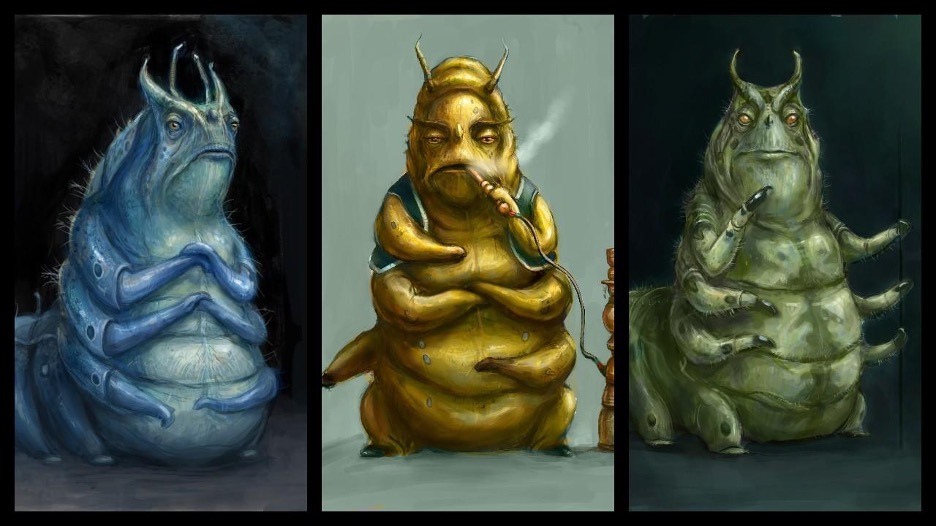
FB
That was the scene she had you read?
GD
I couldn't resist because four of them smoking. I had fun doing that and thought no more of it. Then I was absolutely astounded when she came back and said, “You've got it.” So, thank you very much. I had so much fun recording all three of those books.
FB
It really comes through and I'm so happy to connect with you on this podcast and hear your stories and learn more about the process. It’s a collaboration and I have to produce more books for us to collaborate on. I do have a couple of books, the prequels in the series, that I'm working on so I will be able to call you and we can do this all over again.
GD
I’m a little more advanced now than I was then. I was listening to various sections and chapters in anticipation of this and I'm thinking “Oh, God, I let that go.” I'm hearing what I let slip away rather than using it in some way to advance and build. I didn't recognize it for what it was and I'm being kind to myself and putting that down to an inexperience.
FB
We can all go back. I was doing a podcast and talking about adapting the book for a television show and, in the process, came up with a scene that was so much better than the scene in the book. Then I started thinking about that scene in the book, how illogical it was, and how much more impactful the new scene would have been. So then I gave myself a break saying, “Maybe I can double back and do this in another medium one day.”
I wanted to mention because I know you are musically inclined and have done musicals in your career, that I have commissioned a British writer to adapt the book into a musical in the hopes of starting in the West End in the same way that I first published my book in the UK. I also have a composer and I have a couple of producers who are interested. So you'll have to be one of the early listeners or readers of the book because of your background. Maybe there's a place for you to be King Nolan. I want you to have a beautiful death of some sort, “Off with your head,” along the way.
GD
How lovely, thank you. I’m your fucking man.
FB
On that, I thank you.
GD
Take care. All the best. Thank you.
For the latest updates & news about All Things Alice, please read our blog and subscribe to our podcast! If you'd like to hear Gerard's excellent narration of The Looking Glass Wars, click here!